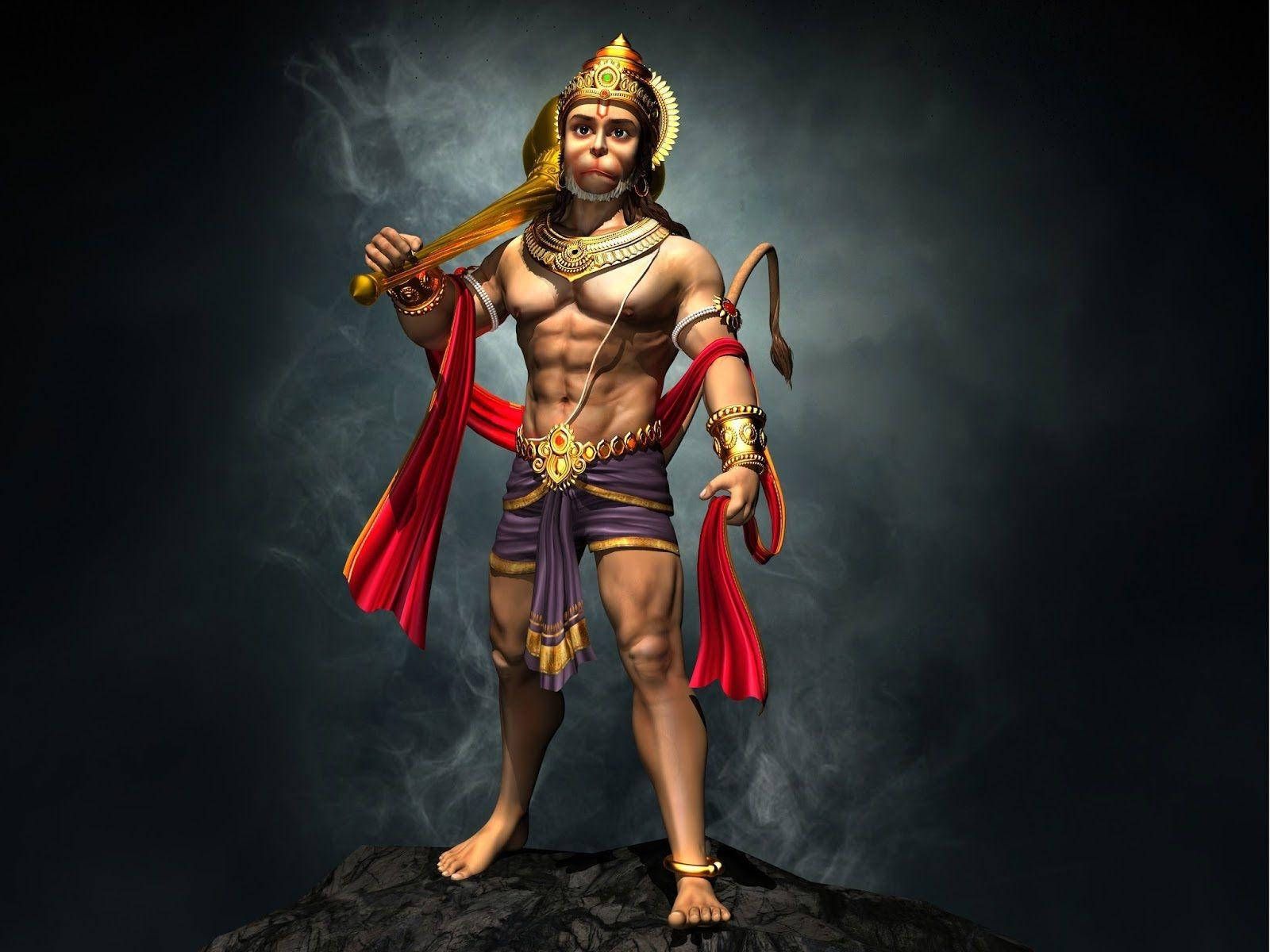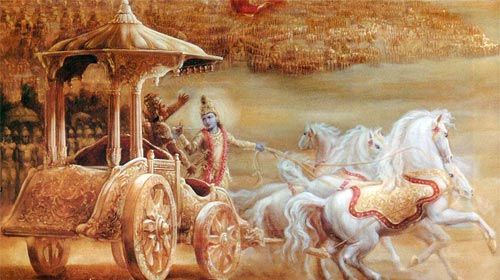These Qualities Made Hanuman and Shree Krishna Great Diplomats
In recent days, when India’s EAM Jayashankar referred to Hanuman and Shree Krishna as the greatest diplomats, the social media was abuzz with tweets, articles, opinions and comments.
Everyone was asking two questions – “Aren’t Hanuman and Shree Krishna all-powerful Gods?” “How come they were diplomats?”
Indeed, Shree Krishna and Hanuman are divine elements worshipped by millions of people. But while fulfilling their worldly duties in the mortal world, they played various roles like that of a friend, guide, son, and much more.
During Shree Ram’s quest, and before the war of Kurukshettra both Hanuman and Shree Krishna were pluripotent diplomats in their own capacity.
While it is necessary to admit and accept that the discipline of diplomacy has undergone transformational changes since the days of Mahabharata and Ramayana, and the content, scenario and rules of the game are no longer the same, it also true that Hanuman and Shree Krishna were great diplomats of their times.
Their diplomacy played a key role in shaping the results of the epics. Here are the qualities that made Hanuman and Shree Krishna great diplomats:
A. Hanuman

1. Agile and Flexible
Hanuman, who was blessed with the ability of agility and flexibility in size, employed it on many occasions both as a “carrot” and “stick”.
For instance, when he encountered the monstrous “rakshashi” Surasa, he used his flexibility to magnify himself to a point where she had no option but to keep her mouth wide open. When she did so, Hanuman entered her mouth and exited it in a moment.
Doing so, not only did he save himself, but also face-saved Surasa, who was gifted with a boon. He went into her mouth, but did not become her food.
Similarly, during his same sea voyage, he encountered another “rakshashi” named Simhika, who was hostile and where “carrots” would not work. Here, he employed the “stick” tearing the “rakshashi” apart.
In this manner in his voyage in the Indian ocean, he exhibited the qualities of a good diplomat: being flexible, trying to give the opposite party a “face-saver” and employing “carrots” and “sticks” to achieve his goal.
2. Alliance Builder
Hanuman was the one who helped Lord Rama connect with the monkey king Sugriva. Hanuman helped Sugriva get back his throne from his elder brother Bali, and in return, Rama got the support of the monkey army in his quest for Lanka.
This alliance became the cornerstone of the Ramayana. From building of the Ram Setu to the final war between Ram and Ravana, the monkey warriors shaped the course of history.
Hanuman in this way, was a great diplomat, who not only helped build a powerful alliance, but also enabled effective resource mobilization setting up a scenario of “win-win” co-operation between Rama and Sugriva.
3. Effective communicator
When Hanuman went to “Ashok Vatika” in search of Seeta, he effectively employed symbolic messages like “Rama’s ring” and make sure he conveyed “Rama’s message” in the original manner.
This was vital even in order for Seeta to believe that this was not Ravan’s conspiracy or “Maya”.
Similarly, to know about Mata Seeta’s whereabouts he connected with Vibhishana, Ravan’s brother based on shared devotion for “Narayana”.
In this way, Hanuman was an effective communicator, a messenger and a diplomat, who could employ symbolism and shared principles for achieving his goal.
4. Innovative Problem Solver
Hanuman had immense self-control and rejected the “Parwat Meghnat’s” request of taking rest during the ocean voyage. Similarly, he was well-versed in Vedas, was a poet and a grammarian, who came up with innovative solutions in the face of problems.
When he could not find the “Sanjibini”, instead of giving up, he brought with him the whole mountain. When they burned his tail, he burned the whole palace with him.
Like diplomats are proficient in numerous languages and have a grasp about culture, Hanuman was also well-versed in number of arts and dealt with challenges in an innovative manner.
B. Shree Krishna

Bhagwan Shree Krishna played several roles in the Mahabharata. The greatest being Arjun’s guide and the preserver of justice or “Dharma”. Here is how he was an excellent diplomat:
1. Meticulous Analyzer
Shree Krishna analyzed Barbarik ‘s strength, and determined he could change the face of the war, even being counterproductive as Barbarik had vowed of helping the losing side.
So, even before the Kurukshettra war began, Shree Krishna used his diplomatic skills to convince Barbarik not to take part in the war and instead view it as an audience.
Thus, in a diplomatic manner, Krishna prevented the enemy side from being powerful by convincing the most powerful warrior to stay neutral.
2. Powerful Persuader
When Balarama, Shree Krishna’s brother was furious at Bhīma for breaking the rules of the mace war and hitting Duryodhana in the thighs, Shree Krishna showed the qualities of a diplomat by logically convincing why Bhīma had the right to do so.
Had Shree Krishna not persuaded Arjun to remind Bhīma of his vow, Bhīma’s vow would have been unfulfilled. Similarly, had he not convinced Balarama that Bhīma’s action was not unjust, Bhīma would have got into trouble.
Additionally, he also tried to convince Karna, one of the most powerful warriors in the Duryodhana’s camp not to side with Duryodhana by stressing on the ideals of “Dharma” or righteousness and the fact that he was also a Kuntiye.
Thus, Shree Krishna had abilities of being a powerful persuader, a vital attribute for diplomats necessary both to make sure that their nation takes the right step, while ensuring others understand their actions.
3. Alliance Building and Creation of Peace Proposal.
When Arjun was in dilemma whether or not to marry Chitarangana, the princess of Manipur, it was Shree Krishna, who suggested this would be beneficial for his nation Indraprastra.
It was Shree Krishna who suggested Arjun that it was necessary that he cultivated friendship in the neighborhood and beyond through generosity and goodwill.
More interesting is Shree Krishna’s effective and benevolent communication style while presenting the peace proposal to King Dhritarastrya.
He appeals to the greatness of the Kuru court, which comprise of all sorts of learned men and warriors, the rich heritage of King Bharata, the history, guilt, and even the opportunity which would be lost if the war happened.
In this manner, Shree Krishna was an ideal diplomat, who through his personal qualities commanded such a respect that even the opposite party would listen and pay heed to his words. Perhaps Shree Krishna’s personal prowess and the belief that he was unbiased and would emphasize upon “win-win” cooperation earned him such a respect even in the Kuru court.
Appreciate the creator